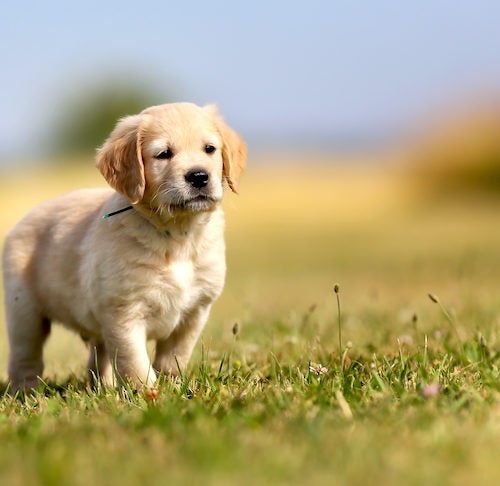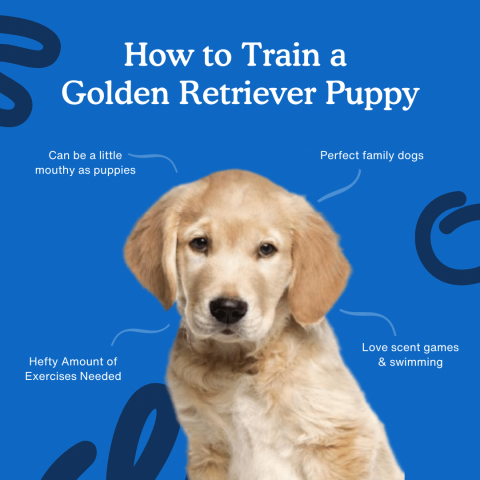Are you considering getting a golden retriever puppy? Well, let me tell you, you’re in for a treat! (pun intended). Golden retrievers are one of the most lovable and popular dog breeds out there.
When you bring a golden retriever puppy home, get ready for bundles of joy and adorable antics. From their fluffy golden fur to their friendly and playful nature, these furry friends will quickly become a cherished part of your family.
But what can you expect when getting a golden retriever puppy? In this article, we’ll dive into the exciting world of golden retriever puppyhood, covering everything from their training needs to their grooming requirements. So, buckle up and get ready for an adventure with your new golden companion!
With their sweet temperament, intelligence, and loyalty, golden retrievers are bound to steal your heart and bring endless joy to your life. From puppyhood to adulthood, these wonderful dogs make for fantastic companions, and this article will guide you through every step of your golden retriever journey. So, let’s dig right in!

What to Expect When Getting a Golden Retriever Puppy?
Golden Retriever puppies are adorable and make great family pets. However, getting a puppy comes with its own set of responsibilities and challenges. It’s important to know what to expect and how to prepare for this exciting new addition to your life. In this article, we will explore everything you need to know about what to expect when getting a Golden Retriever puppy, from training and socialization to grooming and healthcare.
Choosing the Right Puppy for Your Family
Before bringing a Golden Retriever puppy home, it’s important to choose the right one for your family. There are several factors to consider, such as the puppy’s temperament, energy level, and potential health issues. It’s also crucial to find a reputable breeder who prioritizes the health and well-being of their puppies. Take the time to visit the breeder, meet the puppy’s parents, and ask questions about their breeding practices.
Socializing Your Golden Retriever Puppy
Socialization is a vital part of raising a well-adjusted Golden Retriever puppy. Early socialization helps them develop positive behaviors and become comfortable in various environments. Introduce your puppy to different people, animals, sounds, and experiences to help them grow into confident and friendly dogs. Puppy training classes and playdates with other vaccinated dogs are excellent ways to socialize your Golden Retriever and provide essential mental stimulation.
Benefits of Socialization:
1. Builds confidence and reduces fearfulness.
2. Improves behavior around people and other animals.
3. Helps prevent behavioral issues like aggression or anxiety.
4. Enables your puppy to adapt better to new situations throughout their life.
Training Your Golden Retriever Puppy
Training should begin as soon as you bring your Golden Retriever puppy home. Start with basic commands such as sit, stay, and come. Use positive reinforcement techniques like treats, praise, and play to motivate your puppy to obey. Consistency and patience are key when training a Golden Retriever puppy, as they can be easily distracted due to their exuberant nature. Consider enrolling in puppy training classes to help you establish good training habits and ensure your puppy grows into a well-behaved adult dog.
Tips for Training:
1. Start training early and be consistent.
2. Use positive reinforcement techniques.
3. Keep training sessions short and fun.
4. Be patient and persistent.
Grooming and Healthcare
Golden Retrievers have a beautiful, dense coat that requires regular grooming to keep it healthy and free from mats or tangles. Brush your puppy’s coat at least once a week to prevent excessive shedding and keep their fur clean. Additionally, regular baths, nail trims, and ear cleanings are necessary to maintain their overall hygiene. It’s also important to schedule regular visits to the veterinarian for vaccinations, check-ups, and preventive care to ensure your puppy stays healthy and happy.
Grooming and Healthcare Tips:
1. Brush your Golden Retriever puppy’s coat regularly.
2. Bathe your puppy as needed, using dog-friendly shampoo.
3. Trim their nails regularly to prevent discomfort.
4. Clean their ears to prevent infections.
Life with Your Golden Retriever Puppy
Living with a Golden Retriever puppy is an exciting and rewarding experience. They are known for their loyalty, intelligence, and affectionate nature. However, it’s important to be prepared for a high-energy dog that requires plenty of exercise, mental stimulation, and companionship. Provide them with a balanced diet, regular exercise, and lots of love and attention to ensure they thrive in their new home.
Common Challenges and How to Overcome Them
While Golden Retrievers are generally easygoing and friendly, there can be challenges along the way. Some common challenges include chewing, housebreaking, and separation anxiety. It’s important to address these issues early on and provide appropriate training, boundaries, and mental stimulation to help your puppy overcome these challenges and become a well-behaved adult dog.
Conclusion
Getting a Golden Retriever puppy is a wonderful and rewarding experience. By being prepared and knowing what to expect, you can provide a loving and nurturing environment for your new furry friend. Remember to prioritize their socialization, training, grooming, and healthcare needs to ensure a happy and healthy life together. Enjoy the journey of raising a Golden Retriever puppy and cherish the lifelong bond you will form with your loyal and loving companion.
Key Takeaways – What to Expect When Getting a Golden Retriever Puppy?
- Golden retriever puppies are known for their friendly and playful nature.
- They require a lot of attention, exercise, and mental stimulation.
- Training is essential to teach them good manners and basic commands.
- Golden retriever puppies shed a lot and require regular grooming.
- They are prone to certain health issues, so regular vet check-ups are important.
Frequently Asked Questions
Thinking about getting a golden retriever puppy? Here are five commonly asked questions to help you know what to expect when bringing home your new furry friend:
1. How much exercise does a golden retriever puppy need?
Golden retriever puppies are energetic and require plenty of exercise to keep them happy and healthy. They should have at least an hour of physical activity each day, such as walks, playtime in the yard, or games of fetch. Mental stimulation is just as important, so include puzzle toys or training sessions to keep their minds engaged.
Be prepared for lots of outdoor activities, as golden retrievers are known for their love of water. Regular swimming sessions or trips to a dog park with a swimming area are excellent ways to keep your puppy active. Remember to monitor their exercise to avoid overexertion, especially during the hot summer months.
2. Should I crate train my golden retriever puppy?
Crate training can be beneficial for golden retriever puppies. It provides them with a safe and comfortable space of their own and helps with housetraining. Introduce the crate gradually, making it a positive and inviting space with cozy bedding and toys. Start with short periods of time and gradually increase the duration.
Never use the crate as a form of punishment. This will create negative associations and can lead to anxiety. Instead, make it a positive experience by providing treats and praise when your puppy willingly enters their crate. Remember to give them plenty of exercise before crate time to help them relax and sleep during their confinement.
3. How do I properly socialize my golden retriever puppy?
Socialization is crucial for golden retriever puppies to ensure they grow up to be friendly and well-adjusted dogs. Start by introducing them to various environments, people, and other animals at an early age. Take them on walks, to parks, and to supervised playdates with other vaccinated dogs.
Expose your golden retriever puppy to different sounds, sights, and smells. This will help them become more confident and less likely to develop fears or anxiety in new situations. Enroll them in puppy socialization classes, where they can interact with other puppies and learn basic obedience commands.
4. How often should I groom my golden retriever puppy?
Golden retrievers have a thick double coat that requires regular grooming to keep it healthy and tangle-free. Brush your golden retriever puppy at least once a week to remove loose hair and prevent matting. Use a slicker brush or a comb with wide teeth to reach the undercoat.
During shedding seasons, which typically occur in the spring and fall, more frequent brushing may be necessary to manage the increased hair loss. Bathing should be done every few months or as needed, but be cautious not to bathe them too frequently as it can strip their coat of its natural oils.
5. How can I ensure my golden retriever puppy gets proper nutrition?
Providing a balanced and nutritious diet is essential for your golden retriever puppy’s growth and development. Consult with your veterinarian to determine the appropriate amount of food your puppy should be fed, based on their age, weight, and activity level.
Choose a high-quality puppy food that is specifically formulated for large-breed puppies. Follow the feeding guidelines on the packaging and monitor their weight to ensure they are neither underfed nor overfed. Avoid feeding your puppy from the table or giving them excessive treats, as this can lead to weight issues and potential health problems in the future.

Summary
So, to sum it all up, getting a golden retriever puppy can be an exciting experience. These adorable furry friends are known for their friendly nature, loyalty, and intelligence. However, it’s important to remember that they require a lot of attention, exercise, and training. It’s essential to prepare your home, invest in the right supplies, and establish routines to ensure a smooth transition for both you and your new puppy. Patience and consistency will be key in raising a happy and well-behaved golden retriever. With proper care and love, you’ll have a wonderful companion by your side for many years to come.
